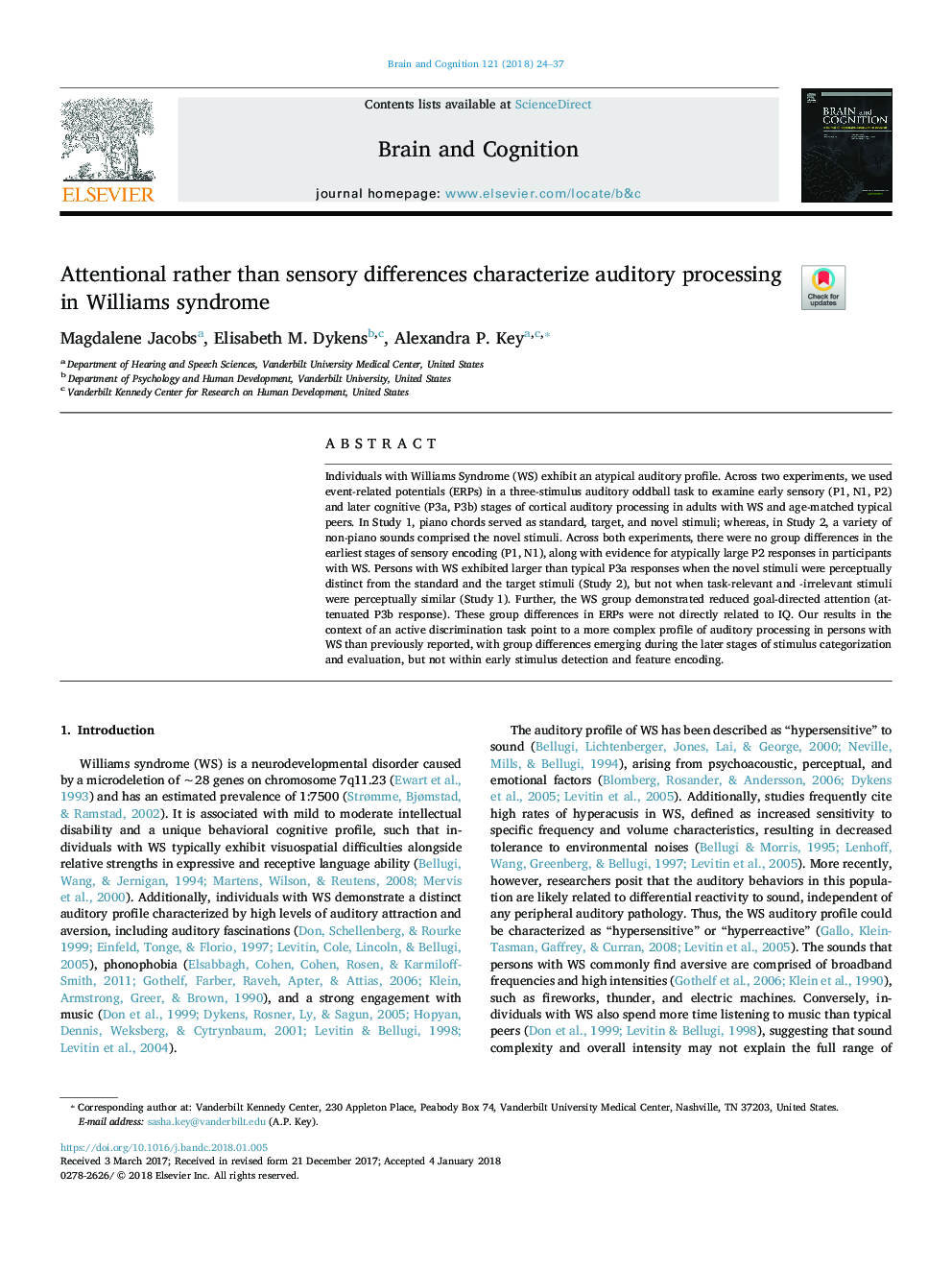| Article ID | Journal | Published Year | Pages | File Type |
|---|---|---|---|---|
| 7282739 | Brain and Cognition | 2018 | 14 Pages |
Abstract
Individuals with Williams Syndrome (WS) exhibit an atypical auditory profile. Across two experiments, we used event-related potentials (ERPs) in a three-stimulus auditory oddball task to examine early sensory (P1, N1, P2) and later cognitive (P3a, P3b) stages of cortical auditory processing in adults with WS and age-matched typical peers. In Study 1, piano chords served as standard, target, and novel stimuli; whereas, in Study 2, a variety of non-piano sounds comprised the novel stimuli. Across both experiments, there were no group differences in the earliest stages of sensory encoding (P1, N1), along with evidence for atypically large P2 responses in participants with WS. Persons with WS exhibited larger than typical P3a responses when the novel stimuli were perceptually distinct from the standard and the target stimuli (Study 2), but not when task-relevant and -irrelevant stimuli were perceptually similar (Study 1). Further, the WS group demonstrated reduced goal-directed attention (attenuated P3b response). These group differences in ERPs were not directly related to IQ. Our results in the context of an active discrimination task point to a more complex profile of auditory processing in persons with WS than previously reported, with group differences emerging during the later stages of stimulus categorization and evaluation, but not within early stimulus detection and feature encoding.
Related Topics
Life Sciences
Neuroscience
Cognitive Neuroscience
Authors
Magdalene Jacobs, Elisabeth M. Dykens, Alexandra P. Key,
